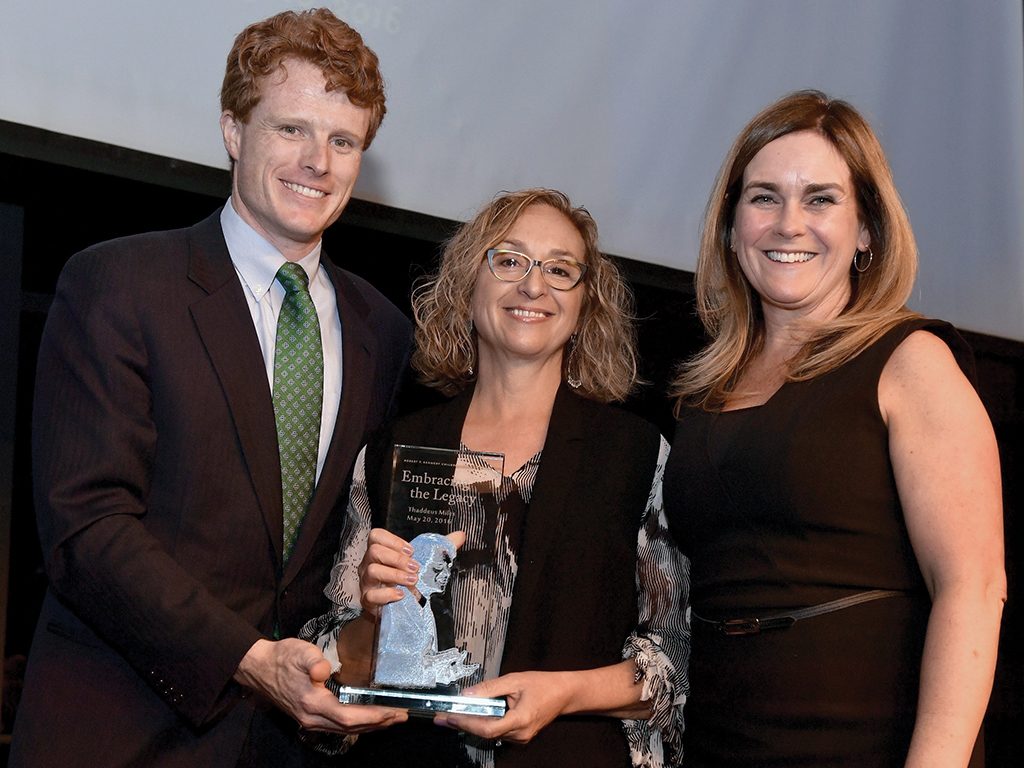Professor Francine Sherman ’80 stepped to the lectern at the John F. Kennedy Library last May and began with these words: “Over my career I’ve met and interviewed many girls and young women, who have grown up in very challenging circumstances and have been involved with the juvenile or criminal justice system. We talk about what has meant most to them, what helped them turn it around. Every one of them tells some version of the same story: There was a person or a group of people who recognized their unique value and contribution.”
In probably more ways than can be counted, Sherman, as the founder of BC Law’s Juvenile Rights Project, has been that presence in the lives of thousands of such girls. One outcome: Massachusetts is an exception to the national trend of girls making up a larger share of the juvenile justice population. “The state has been a leader in this area, and as a result we have one of the lowest incarceration rates in the country,” Sherman says.
Sherman was at the Kennedy Library to receive the Embracing the Legacy Award from Robert F. Kennedy Children’s Action Corps CEO Ed Kelley. “Clearly one of the most talented in her field, she has passionately and consistently highlighted and advocated for better services and understanding of young women in the system,” he said.
The co-author (with Annie Balck ’05) of the 2015 study Gender Injustice: System-Level Juvenile Justice Reforms for Girls, Sherman’s reach goes well beyond Massachusetts. She is preparing to launch another report this year based on her findings from interviews with twenty adult women across the country who are striving to overcome the trauma of their early years.
Sherman also helped to draft the Office for Juvenile Justice and Delinquency Prevention’s (OJJSP) Policy Guidance, and, as a consultant to the OJJDP’s National Girls Initiative and to the Annie E. Casey Foundation, she works with jurisdictions nationwide to implement those principles.
“It is incredibly gratifying,” Sherman says, “to watch systems examine their practices, identify ways girls are unnecessarily detained and incarcerated, and change their policies and practices to prevent that confinement.”
Photo: Congressman Kennedy, Professor Sherman, and Catherine Brady of the Robert F. Kennedy Children’s Action Corps



